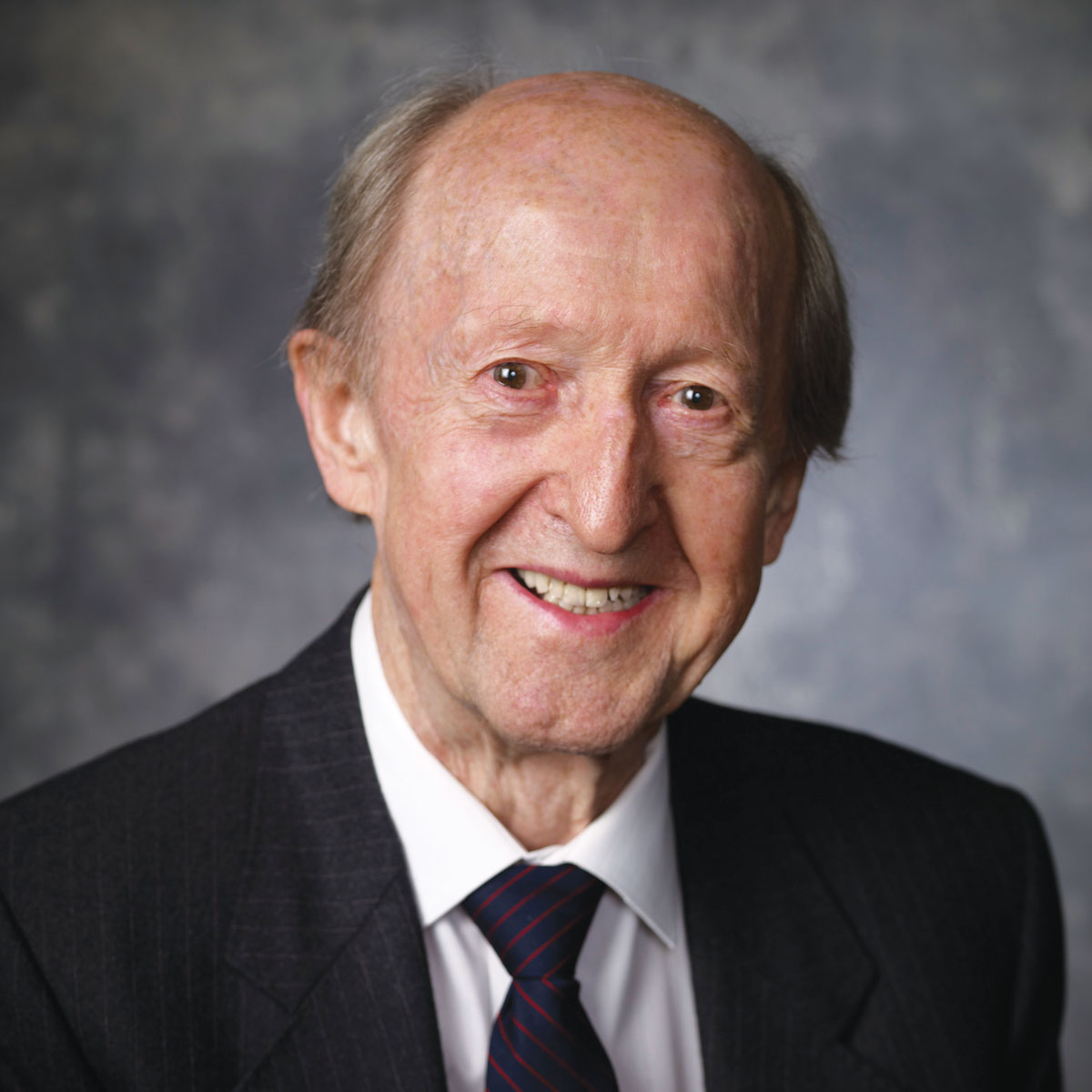Dr. Aage Møller
- Former Professor of Neuroscience
- Founders Professor (Former)

The University of Texas System supports the professorship.
“I have had great luck in life, making it possible to participate in many different kinds of research and to make contributions to various areas of science.”
In memory of Dr. Aage Møller
April 16, 1932 – August 19, 2022
Dr. Aage Møller is known internationally for his innovative research on sensory systems and neural plasticity. His work helped establish UT Dallas as a leader in tinnitus-related research.
He is perhaps best known for his development of intraoperative neurophysiological monitoring (IONM), a technique used worldwide that reduces the risk of serious complications during brain surgery. At UTD, he helped develop the neuroscience program, now a full-fledged department, and was still teaching almost 500 students every semester in 2022.
A native of Denmark, Møller was fascinated with sound from an early age. He was an amateur radio operator in his teen years. His aptitude for electronics led him to study in Stockholm — first at the KTH Royal Institute of Technology, then at the Karolinska Institute. His earliest research revolved around hearing, specifically the function of the middle ear.
Møller received his doctorate in medical science in 1975 from the Karolinska Institute. He later studied the cochlea in depth, including a 1977 study presenting proof that the cochlea in a living animal is much more frequency-selective for weak sounds than loud sounds.
Reflecting on this work in 2006, the journal Hearing Research — for which Møller was founding editor — published an article by Dr. William S. Rhode of the University of Wisconsin-Madison titled “Contributions of Aage Møller in the study of the cochlear nucleus.”
“In an era when little was known about the function of the auditory central nervous system, Aage Møller engaged in an elaborate series of studies that greatly expanded our knowledge of the cochlear nucleus,” Rhode wrote. “His efforts generated a significant body of work that has rarely been equaled in the modern era with many original observations on cochlear nucleus unit behavior.”
In the 1970s, Møller also became an expert on the hazards of noise exposure and represented the Environmental Protection Agency in hearings held by the Department of Labor.
Møller moved to the U.S. in 1978 to join the University of Pittsburgh School of Medicine’s otolaryngology department. His interests shifted to tinnitus and the auditory brainstem response (ABR). His work was the first to describe how the different components of the ABR are generated, and he began to connect many common disorders, including tinnitus and chronic pain, to maladaptive neuroplasticity.
He eventually modified the methods he used for electrophysiological brain research into a system for reducing the risk of nervous system damage during surgery. In 1988 he published the first book on the subject, which established the medical field of IONM. Møller helped found the American Society of Neurophysiologic Monitoring and served as its second president.
Over the decades, Møller earned membership in the American Auditory Society, the American Neurotology Society, the Society for Neuroscience and many other professional organizations.
Møller arrived at UTD in 1997 to join what was then known as the School of Human Development. His research pivoted to neurophysiologic abnormalities in individuals with autism. He developed teaching programs in the biology of pain, sensory systems and neuroplasticity, and he established one of the first university programs to teach IONM to graduate students.
Dr. Alice O’Toole, the inaugural Aage and Margareta Møller Professor of psychology, said there is no better role model than Møller. He and Margareta, who died in 2011, established the professorship in 2008 to support the research activities of a faculty member in BBS.
“Professor Møller was an inspiration and role model to me over his many years at UTD.,” O’Toole said. “What made him such a great role model for students was that he never stopped learning. It was never difficult for him to understand the world from the perspective of the student, because he never stopped being one.”
Møller published 24 books, more than 200 peer-reviewed articles and in excess of 100 book chapters. He gave more than 300 invited lectures around the globe.
Møller served as chairman of the UTD Institutional Review Board (IRB) from 2002 to 2005, and again from 2007 to 2017. In that role, he was instrumental in building the human subjects research committee.
He received the President’s Teaching Excellence Award for Tenure-Track Faculty from UT Dallas in 2011, the same year that he established the Aage Møller Teaching Award. Through the years, he also supported students through the Aage and Margareta Møller Endowed Scholarship, the Aage and Margareta Møller Fund for Vets of the U.S. Armed Forces, and by funding student travel in the School of Behavioral and Brain Sciences.